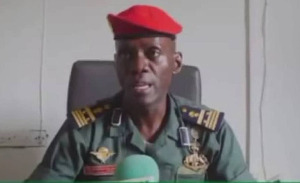Dr. Ta-Mbi Nkongho, lecturer of International Relations and Political Theory at the University of Buea, has in his new book questioned the foundations on which state-managed companies were privatised, challenging the capitalist dogma.
The new book titled “a critical analysis of state transformation through privatisation” explains the state crisis in sub-Saharan Africa with a succinct and in-depth analysis of the transformation of the Cameroonian state through privatisation.
During the launching of the book at the Amphitheatre 250 of the University of Buea on Friday, January 30, 2015, the reviewers described the book as a must-read piece for policy makers, analysts, researchers, programme and project implementers, as well as scholars of International Relations.
In a not-too-short review of the 263-page book, Dr. Timothy Mbuagbor added his voice to that of the author when he underscored that the state in sub-Saharan Africa is at crossroads. He said if we don’t want to have structural maladjustment again, then Cameroonians need to buy, read and keep a copy of the new book that diagnoses Cameroon’s failures after almost three decades of economic liberalisation.
Wang Metuge, a Marxist Theorist and Lecturer at the University of Buea rather described the book as “a fantastic study”.
“…this is a fantastic study. This book is the first-ever to challenge the basis of the strategies on which we choose to solve our economic problems. It questions the capitalist dogma,” Wang Metuge said.
The Marxist theorist added in his review of the new book that “there is no way we can emerge if false dogma on the causes of our problems can’t be challenged.”
Wang Metuge regretted that even though a diagnosis of our problems is contained in the new book, Cameroonians may not get to see it because they do not read.
“We simply do not read and the worst thing to happen to a man is for him to suffer from intellectual kwashiorkor. Ignorance is evil and it makes you become a zombie. When the mind is not healthy, the body decays,” Wang said.
Dr. George Epah Fonkeng, Deputy Vice-Chancellor in charge of Research, Cooperation and Relations with the Business World represented the Vice-Chancellor at the book launch accompanied by Prof. Enoh Tanjong, Vice Dean of the Faculty of Social and Management Sciences in charge Of Programmes and Academic Affairs.
Dr. Epah Fonkeng said the book will serve as a working document for students, justifying why the University of Buea chose to buy 50 copies of the book for its library.
The book
Dr. Ta-Mbi Nkongho in his diagnosis reveals that “despite almost three decades of economic liberalisation under the auspices of the International Monetary Fund (IMF) and the World Bank and their associated states, sub-Saharan Africa has continued to descend into the abyss of poverty and economic decadence.”
He adds that the deplorable state of the economy is confirmed by the rising levels of corruption, unemployment, unprecedented migration especially brain drain and overall underdevelopment.
According to the lecturer of International Relations and Political Theory, Cameroon gives an insight of the conception of the state crisis and the unfolding of the entire liberalisation process with privatisation as a universal solution to state aptitude and expertise.
His investigations reveal that welfare gains made by the region were reversed, with the capitalists and their respective states emerging victorious.
Dr. Nkongho holds a PhD in International Relations from the University of Sussex in the United Kingdom after obtaining an M.Sc. in International Relations, a Postgraduate Diploma in Political Science and a B.A. in History all from the University of Nigeria, Nsukka.
He has eight publications to his credit.
Actualités of Wednesday, 4 February 2015
Source: The Sun Newspaper













